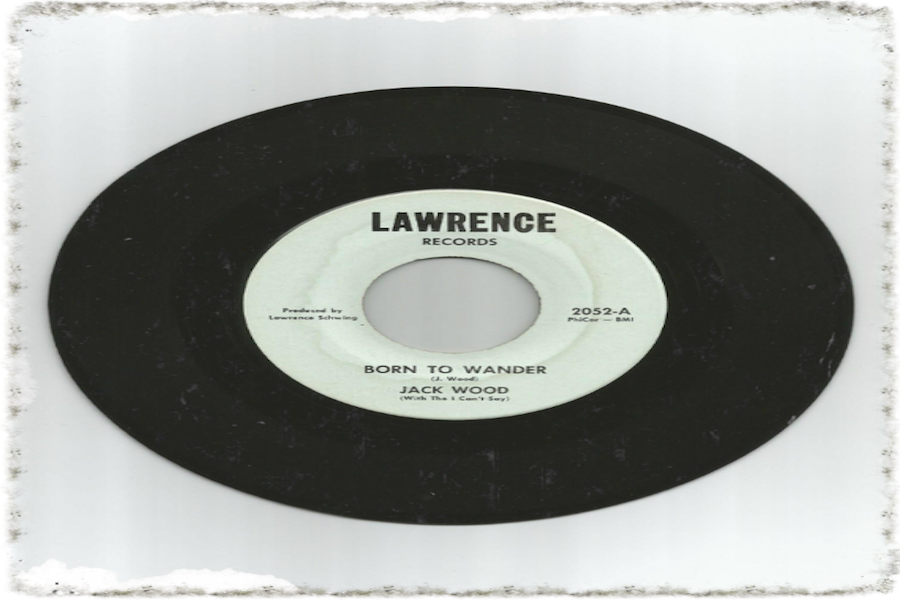Jack Wood’s “Born to Wander” has been resurrected
November 4, 2016
The progression of a musician’s fame is a romantic notion, one that can inspire a young band to go on playing shows in small urban venues until a minuscule level of success creeps its way in, disguising itself as a “big break”. There is a central cliché surrounding the notion of a young musician who constantly seeks a life of royalty similar to that of the rockstars who inspired him beforehand.
For rock musician Jack Wood, this dream was never realized in the 1960’s, while he wandered from venue to venue with a local band, the “I Can’t Say”, across hometown, Grand Rapids, Michigan, and later throughout the United States.
Years were spent by Wood gigging in the 1970s, and even recording an album in 1993, trying to catch the public’s eye. He was denied time after time by record companies, and was unable to achieve success as a musician until, eventually, he went off the road to study opera.
It was nearly fifty years later, the spring of 2015, when Wood picked up the phone and received a call from a local record collector who had managed to get his hands on a copy of Born to Wander, a forty-five he had recorded at the age of twenty-four, and wanted to have the record autographed. It was written around the idea of a young, wild, and free guy who could not settle into a relationship or stationary position in life.
“I remember writing it. I was living in just a little two-room boarding house at the time. I was always broke in those days. It was an afternoon, and I was sitting at my kitchen table, and I’m not sure where it came from,” Wood said. “Lots of times, when you write music, it just flows out. I had written songs that have taken me three years to finish, but that one just came out of the air in twenty minutes or so,” Wood said.
Wood Googled his record that night, and was shocked by what he found: copies of Born to Wander were being bought and sold on the internet for anywhere from one to two thousand dollars.
“I was blown away because I didn’t know anyone knew about it, and I had pretty much forgotten about it myself,” he said.
Still owning the rights to Born to Wander, Wood decided to have another pressing of 500 records done and began selling them online. It was then that Ben Blackwell, one of the heads of Tennesse’s Third Man record label, decided to purchase a copy of Wood’s record.
Within weeks, Wood received a call from the New York advertisement agency BBDO, who asked him if he would be interested in licensing his song, “Born to Wander”, in Bacardi’s new “Party House” commercial line, which was centered, ironically enough, around making the rum brand popular for millennials. Wood accepted this offer graciously, and sure enough, “Born to Wander” was being broadcasted nationwide, and even in some parts of Europe.
“I had no idea how big and expensive the Bacardi commercial was going to be […] my song was about to be broadcast hundreds of times each week on late night TV,” Wood said, “Once again, I was in awe”.
With Born to Wander coming back from the dead, Wood sent a copy of the new commercial to Ben Blackwell. With time, Third Man offered Wood a place on their label, and a deal in which digital downloads and forty-five records are handled and distributed under them.
Wood, at the age of seventy-four, does not see this strange twist of fate as the end of the road for his musical career. Instead, he intends to record and self-distribute many albums to come, including his next one, which he says will comprise only songs written by 60’s singer-songwriter Roy Orbison.
“I’m doing a complete album of Roy Orbison[…] he had a natural operatic voice, and I actually studied opera for several years,” Wood said. “I think that this might be a good step because the same people who like Born to Wander will also like Roy Orbison,” he said.
While some music becomes popular as the voice of its generation, and other music goes unheard by the public, the story of Jack Wood lies somewhere in between. His record, Born to Wander, was buried deep within the musical underground of the 1960s and, to most, appeared dead. This was not the case, for it was actually growing slowly, waiting to sprout from the ground fifty years later- the voice of a new generation.
“It’s been a wild and highly gratifying journey for me. Born To Wander is a record that just refused to die and it waited nearly fifty years for the world to discover it. I am especially pleased that it has been the impetus for a much-welcomed revival in my music career,” Wood said.








Ken • Mar 1, 2020 at 7:35 pm
I discovered Born To Wander On the tv add also. Great music and I’m wondering why Jack Wood is not as well known as others. He should be a superstar. I heard the reverse song on You Tube and it’s good also. Talented guy for sure. Good voice. Not much info about him but some.
Jack Wood • Jan 5, 2017 at 9:35 am
Extremely well done, Anthony. You definitely have the writer’s gift. I’m honored that you chose to feature me in the early part of your career. I predict great success!
Thanks for interest….
Jack Wood
Grand Rapids, Michigan